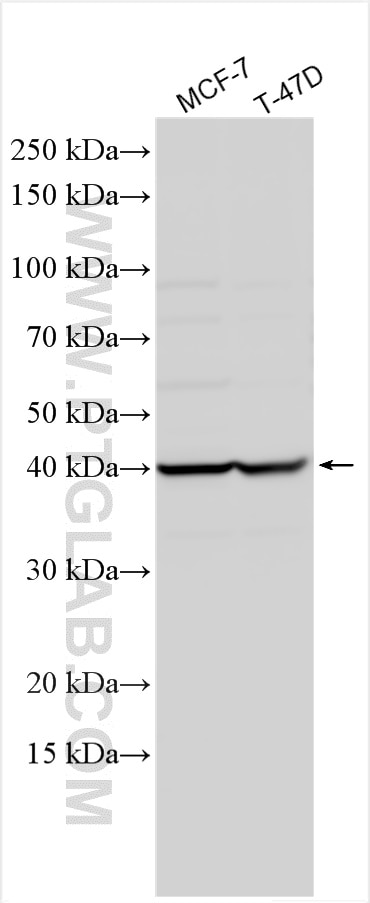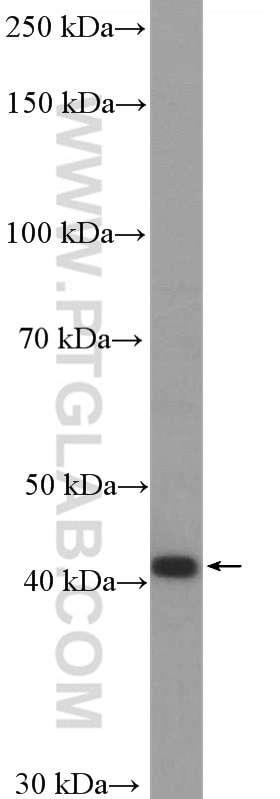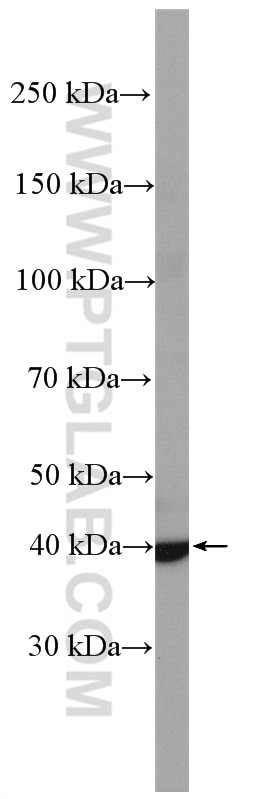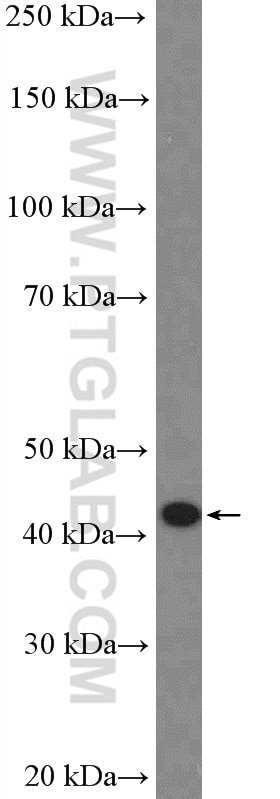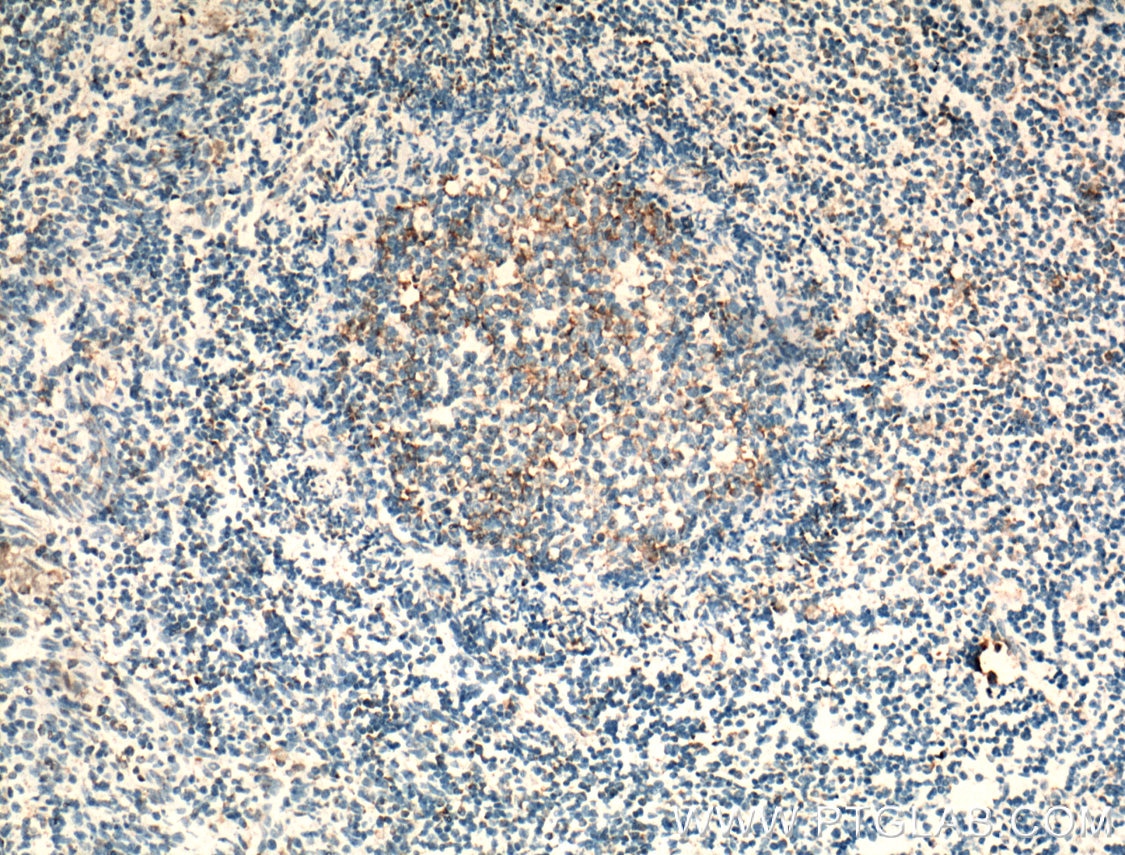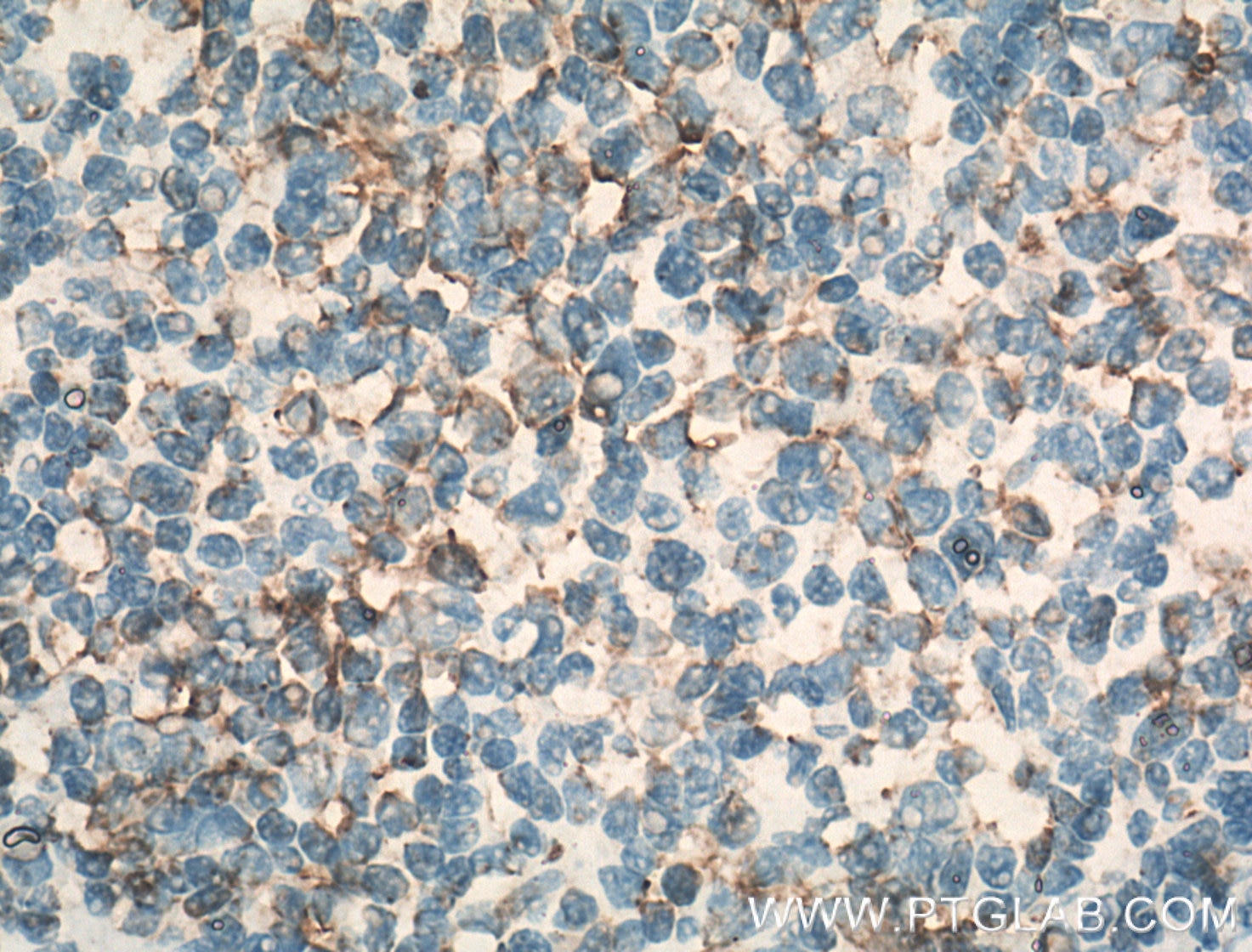Anticorps Polyclonal de lapin anti-CCR7
CCR7 Polyclonal Antibody for WB, IHC, ELISA
Hôte / Isotype
Lapin / IgG
Réactivité testée
Humain, rat et plus (1)
Applications
WB, IHC, IF, ELISA
Conjugaison
Non conjugué
N° de cat : 25898-1-AP
Synonymes
Galerie de données de validation
Applications testées
| Résultats positifs en WB | cellules MCF-7, cellules C6, cellules K-562, cellules T-47D |
| Résultats positifs en IHC | tissu d'amygdalite humain, il est suggéré de démasquer l'antigène avec un tampon de TE buffer pH 9.0; (*) À défaut, 'le démasquage de l'antigène peut être 'effectué avec un tampon citrate pH 6,0. |
Dilution recommandée
| Application | Dilution |
|---|---|
| Western Blot (WB) | WB : 1:500-1:1000 |
| Immunohistochimie (IHC) | IHC : 1:50-1:500 |
| It is recommended that this reagent should be titrated in each testing system to obtain optimal results. | |
| Sample-dependent, check data in validation data gallery | |
Applications publiées
| WB | See 9 publications below |
| IHC | See 8 publications below |
| IF | See 8 publications below |
Informations sur le produit
25898-1-AP cible CCR7 dans les applications de WB, IHC, IF, ELISA et montre une réactivité avec des échantillons Humain, rat
| Réactivité | Humain, rat |
| Réactivité citée | rat, Humain, souris |
| Hôte / Isotype | Lapin / IgG |
| Clonalité | Polyclonal |
| Type | Anticorps |
| Immunogène | CCR7 Protéine recombinante Ag22941 |
| Nom complet | chemokine (C-C motif) receptor 7 |
| Masse moléculaire calculée | 378 aa, 43 kDa |
| Poids moléculaire observé | 40-43 kDa |
| Numéro d’acquisition GenBank | BC035343 |
| Symbole du gène | CCR7 |
| Identification du gène (NCBI) | 1236 |
| Conjugaison | Non conjugué |
| Forme | Liquide |
| Méthode de purification | Purification par affinité contre l'antigène |
| Tampon de stockage | PBS with 0.02% sodium azide and 50% glycerol |
| Conditions de stockage | Stocker à -20°C. Stable pendant un an après l'expédition. L'aliquotage n'est pas nécessaire pour le stockage à -20oC Les 20ul contiennent 0,1% de BSA. |
Informations générales
C-C chemokine receptor type 7 (CCR7), which belongs to the G-protein coupled receptor 1 family, is also a receptor for the MIP-3-beta chemokine, and probably acts as a mediator of EBV effects on B-lymphocytes or of normal lymphocyte functions. CCR7 is specially expressed in various lymphoid tissues and activated B- and T-lymphocytes, and can be strongly up-regulated in B-cells infected with Epstein-Barr virus and T-cells infected with herpesvirus 6 or 7.
Protocole
| Product Specific Protocols | |
|---|---|
| WB protocol for CCR7 antibody 25898-1-AP | Download protocol |
| IHC protocol for CCR7 antibody 25898-1-AP | Download protocol |
| Standard Protocols | |
|---|---|
| Click here to view our Standard Protocols |
Publications
| Species | Application | Title |
|---|---|---|
ACS Nano Antigen Self-Presented Personalized Nanovaccines Boost the Immunotherapy of Highly Invasive and Metastatic Tumors | ||
Bioact Mater Two-stage degradation and novel functional endothelium characteristics of a 3-D printed bioresorbable scaffold. | ||
Virulence Intranasal bovine β-defensin-5 enhances antituberculosis immunity in a mouse model by a novel protein-based respiratory mucosal vaccine. | ||
Front Cell Dev Biol Potential Mechanisms of the Impact of Hepatocyte Growth Factor Gene-Modified Tendon Stem Cells on Tendon Healing. | ||
Stem Cell Res Ther Tendon stem cell-derived exosomes regulate inflammation and promote the high-quality healing of injured tendon. | ||
Front Mol Biosci CCR7 Has Potential to Be a Prognosis Marker for Cervical Squamous Cell Carcinoma and an Index for Tumor Microenvironment Change. |
